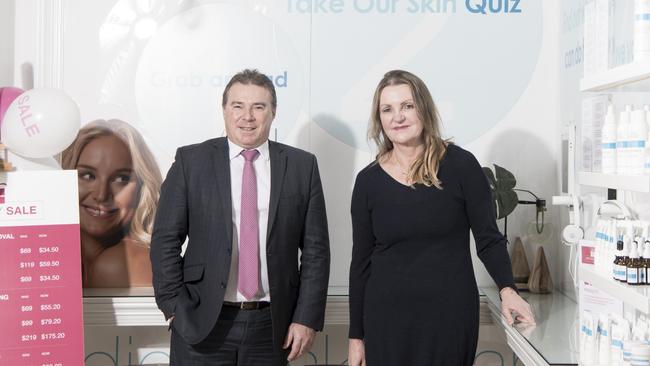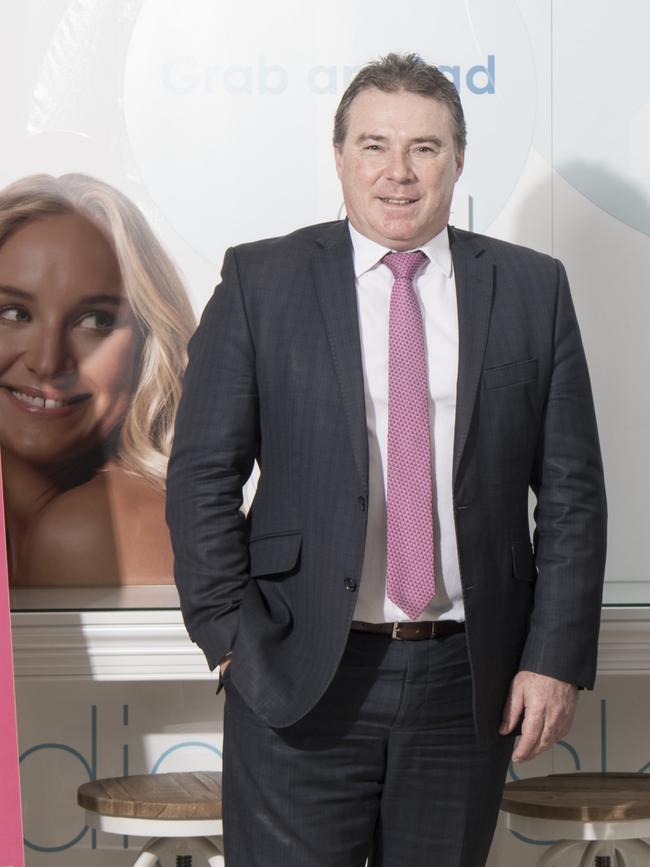2019 CEO Survey: Richard Vincent, Australian Pharmaceutical Industries
Australia needs to play catch up on innovation and R&D policies, says API’s Richard Vincent.

Every year The Australian’s John Durie asks some of the biggest names in Australian business five key questions about what’s coming in the year ahead.
READ MORE: John Durie’s 2019 CEO Survey.
How is your company affected by low-interest rates and what is needed to boost the economy?
The low-interest-rate environment has reduced the cost of our debt facilities. However, further interest rate cuts are unlikely to provide a significant stimulus to the economy. In terms of boosting the economy, we still need to address the high cost of energy. Personal tax rates are too high, and Parliament should pass stages two and three of the Government’s income tax cuts. Taxpayers would respond very well to the extra dollars, and this would provide a much-needed boost to discretionary spend.
What is the impact of government regulations on your company, including those applying to the financial sector?
As one of the biggest full-line distributors of medicines in Australia, we are responsible for fulfilling the government’s promise of equality of access to PBS medicines for all Australians, which essentially means delivery within 24 hours to any pharmacy, irrespective of where it is.
We receive funding to allow us to meet the Government’s commitment, and this is determined under the Department of Health’s Community Services Obligation (CSO) Funding Pool which expires in June 2020. We’re currently engaged with the government about the future of CSO funding. I have no doubt the Government recognises the value of the CSO in delivering equal access to medicines, and we expect the CSO to remain in place.
We haven’t been impacted by financial services regulations.

What percentage of company revenues are spent on research and development, and how is your company using technology to improve performance?
Our group’s total revenue is $4bn, and a significant portion of this revenue derives from pharmacy distribution which, while highly cash generative, is very low margin, so R&D expenditure as a percentage of revenue isn’t a useful guide for our business. We have
significantly increased our investment in R&D in recent years, primarily in our Consumer Brands business, where we have developed a range of healthcare and personal care brands. We now have a comprehensive range of products in both of these categories with long-term contracts in place with distributors and retailers. As a result, this year’s gross profit for the Consumer Brands business was up 24.7 per cent. Innovation is critical in this category, so our investment in R&D will continue in coming years.
We put in the world’s first fully-integrated wholesale and retail SAP system. This has transformed our business, providing us with a clear strategic competitive advantage and allowed us to grow substantially while managing costs down. We have recently upgraded our Priceline Pharmacy Sister Club loyalty program. Our Sister Club members have a much larger basket size compared to non-members, so further enhancing the program improves interaction and delivers more personalised offers, and hence it is a key priority for us.
What are the three major policy issues facing the country and what should be done about them?
● There is little doubt that international developments like trade disputes, the slow-down in China’s economy and Brexit have suppressed both business and consumer confidence. Add to that the drought, bush fires, stagnant wage growth and rising energy costs, and it is clear that domestic policies to boost confidence are much needed.
● Personal tax cuts should be a priority and, at some stage, we should revisit the corporate tax rates.
● We need a coherent innovation policy, we’ve had too much short-termism and uncertainty and we are lagging further behind other countries like the US, Singapore, Germany and Israel in terms of R&D investment. Artificial intelligence will present challenges in terms of redefining jobs, but it will also create opportunities for early innovators, and I worry Australia will miss out on this major wave.
What are the major impediments to long-term growth facing your company and what can or is being done about them?
Pharmacy distribution is our largest business unit but, over the past decade, successive reductions in PBS funding and caps on the funding for our delivery of the government’s community service obligation means that this business will not deliver significant profit growth. So, we diversified into retail pharmacy via Priceline Pharmacy and established it as a leading national health and beauty brand with close to 500 stores. More recently, we purchased Clear Skincare Clinics, which provides a range of minimally invasive cosmetic medicine treatments and skincare products. We now plan to rapidly expand Clear Skincare’s retail footprint. And our Consumer Brands beauty and healthcare manufacturing business is also showing significant potential for profit growth. The common thread is that we can use our existing operational expertise and infrastructure to leverage growth in each of these businesses.




To join the conversation, please log in. Don't have an account? Register
Join the conversation, you are commenting as Logout